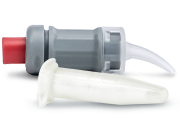
There are many questions dentists have regarding rehiring the dental team after an unexpected break. Many employees are excited to get back to taking care of our patients. There are also some unknowns for employers as they may not have gone through a rehiring process.
On-boarding Process
Employers need to pay attention to local, state, and national recommendations. Currently, the American Dental Association is recommending emergency care only until April 30th, 2020. Some states and local governments have more extensive restrictions due to more severe activity in their area. Washington State has restricted performing non-urgent care until May 18th, 2020. Once an office determines when they can reopen, they should determine what their needs for staff will be.
After these needs are determined, one could poll the staff that are laid off or on furlough to see who is ready to come back to work. This will help the office match up with the needs of the team. If the office anticipates needing everyone back at the beginning, they can provide a start date for the team, and should the employee not report to work their position, they can be replaced.
The rehiring process should include an offer letter and their salary as required by local and state laws. New documents such as W2 and possibly an I9 should be completed. Staff should also re-sign acceptance of the Employee Handbook with any updated policies that may be needed such as self-reporting illness. It is best to take a positive approach to make it a non-event and inform the staff that this is a reset for the office.
Infection Control Protocols
When rehiring the dental team, it could be useful to review the new ADA website regarding the coronavirus. The ADA has established guidelines and interim guidance to help dental healthcare providers. These guidelines are likely to change and should be reviewed frequently by a designated staff member. The guidelines provide information on minimizing exposure risk before, during, and after a dental appointment. The interim guidance can be found here.
Paycheck Protection Program
Previously Paul Donnelly, a certified professional accountant, came on to discuss financial opportunities for dentists during the coronavirus outbreak. The Paycheck Protection Program (PPP) has undergone changes and the second round of funding was approved by the Senate on April 21, 2020. The program allows for a forgivable loan of 2.5 times a business’s payroll. The loan is a two-year SBA loan at one percent with six months of deferred payment. 75% of the loan must be utilized for payroll, and the other 25% can be used for utilities, interest, and rent. The loan has the potential to be forgiven if the number of full-time equivalents at the office is restored within eight weeks and maintained by June 30, 2020, through September 30, 2020.
Families First Coronavirus Response Act
Recently congress passed the Families First Coronavirus Response Act (FFCRA) which allows employees to be protected to care for themselves or a family member. The law allows for two weeks of paid sick leave from an employer should an employee need to quarantine due to the coronavirus. The employer should pay the employee in a new category without removing any taxes. A form can then be sent to the Internal Revenue Service for reimbursement of the employees’ wages. Should an employee need additional time to care for a child or family member they can get ten more weeks of FMLA at eighty percent of their pay. If the employee is not sick, they are eligible for twelve weeks of FMLA to care for a family member.
Additional Resources
Disclaimer: This information is not intended to provide legal advice or replace the advice given by an attorney or accounting expert. It is recommended that any decisions made by an owner or individual are done with consultation with the appropriate professional service.
Paul Edwards
Paul Edwards is the CEO and Co-Founder of CEDR HR Solutions. Paul has over 25 years of experience as a manager and business owner. He is well-known throughout the dental and medical communities for his expertise and specialty in helping doctors successfully handle employee issues and safely navigate the complex and ever-changing employment and labor law landscape. Paul and his team of CEDR experts regularly speak at seminars, conferences and CE courses throughout the country.


